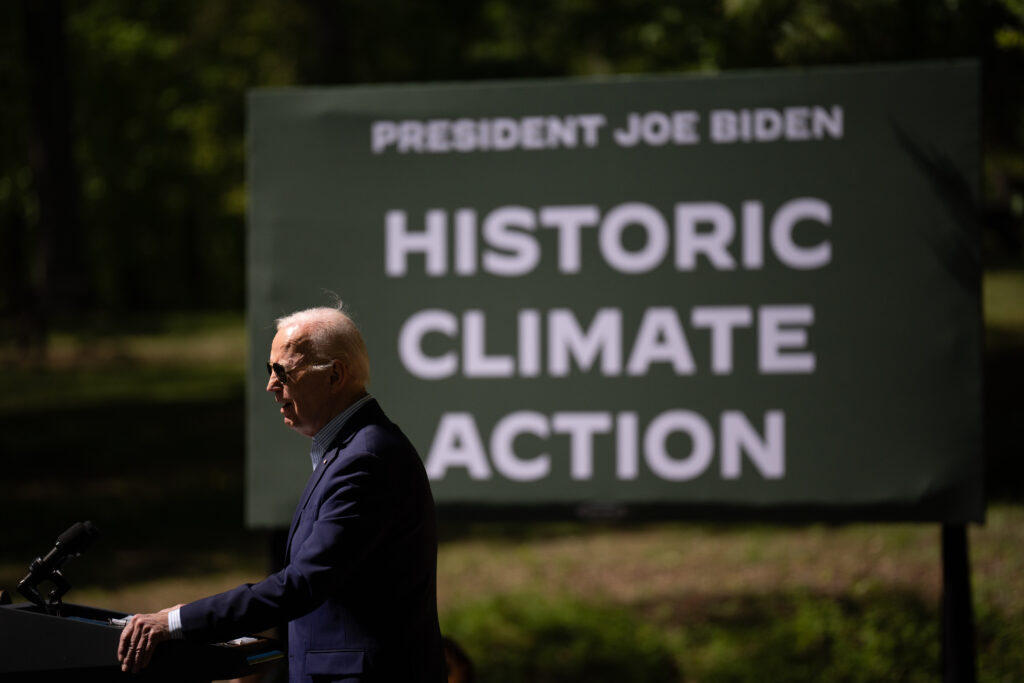President Joe Biden’s administration on Thursday unveiled an ambitious new climate target under the landmark Paris accord, just weeks before Donald Trump’s return to the White House threatens to upend US efforts to combat global warming.The plan commits the United States to reducing economy-wide greenhouse gas emissions by 61-66 percent below 2005 levels by 2035, on the path to achieving net zero by 2050.”I’m proud that my administration is carrying out the boldest climate agenda in American history,” Biden said in a video statement hailing the new measures, which reflect the world’s second-largest polluter’s plans to holding long-term warming to 1.5 degrees Celsius.The Nationally Determined Contribution (NDC) document, a voluntary pledge submitted to the United Nations, said the target would be met through new technologies, reducing energy waste, transitioning to clean energy, electrifying vehicles, improving building efficiency, scaling up clean hydrogen and more.But Biden’s climate legacy now hangs in the balance, with Trump’s second term expected to bring sweeping rollbacks of environmental protections and a retreat from international commitments, including the Paris agreement, mirroring his first term.”In his first term, President Trump advanced conservation and environmental stewardship while promoting economic growth for families,” Trump-Vance transition spokeswoman Karoline Leavitt said in a statement to AFP.She added Trump’s policies “produced affordable, reliable energy for consumers along with stable, high-paying jobs” and vowed that his second term “will once again deliver clean air and water for American families while Making America Wealthy Again.”- States and businesses to the rescue?In a call with reporters, Biden’s global climate envoy John Podesta acknowledged that while Trump “may put climate action on the back burner,” he remained confident in the private sector and state and local governments to drive progress.”That’s not wishful thinking — it’s happened before,” he stressed.Environmental groups broadly welcomed the new targets, which were due before a UN deadline in February and include a commitment to reduce emissions of super polluting methane by 35 percent by 2035.”This provides an important rallying point and benchmark for forward-looking states, cities, and businesses that understand addressing climate change is good for the economy,” Rachel Cleetus of the Union of Concerned Scientists told AFP.But advocacy group Oil Change International voiced criticism too, arguing the NDC plan “doubles down on the failed strategy of counting on clean energy to displace fossil fuels without simultaneous efforts to stop fossil fuels.”- Bold record, with caveats -Biden’s administration has arguably pursued the most ambitious climate agendas in US history, marked by rejoining the Paris agreement, passing the Inflation Reduction Act with record clean energy investments, and committing to protecting 30 percent of land and water by 2030.Yet critics point to the contradiction of the US expanding its status as the world’s largest oil and gas producer, complicating efforts to lead on global climate action.While China is the world’s largest emitter, the United States remains the largest historic polluter, amplifying its responsibility to address the climate crisis, environmentalists argue.Despite progress, the United States remains off-track to meet its current 2030 target of reducing emissions by 50-52 percent below 2005 levels.A recent report by the Rhodium Group said the United States was on track to achieve only a 32-43 percent reduction by 2030, though a senior Biden administration official said their own estimate “now reaches up to 45-46 percent.”Meanwhile, the European Union — the world’s fourth-largest emitter — is debating a 90 percent reduction by 2040 from 1990 levels but has yet to submit its updated plan. Similarly, major polluters China, India and Russia have yet to announce their NDCs.Market trends and falling renewable energy costs may limit backsliding under Trump, but Cleetus cautioned against complacency.”Regardless of the politics, the science and what’s happening in the world are very clear,” she said, noting that 2024 is on track to be the hottest year on record as climate catastrophes mount.
Thu, 19 Dec 2024 15:56:04 GMT
